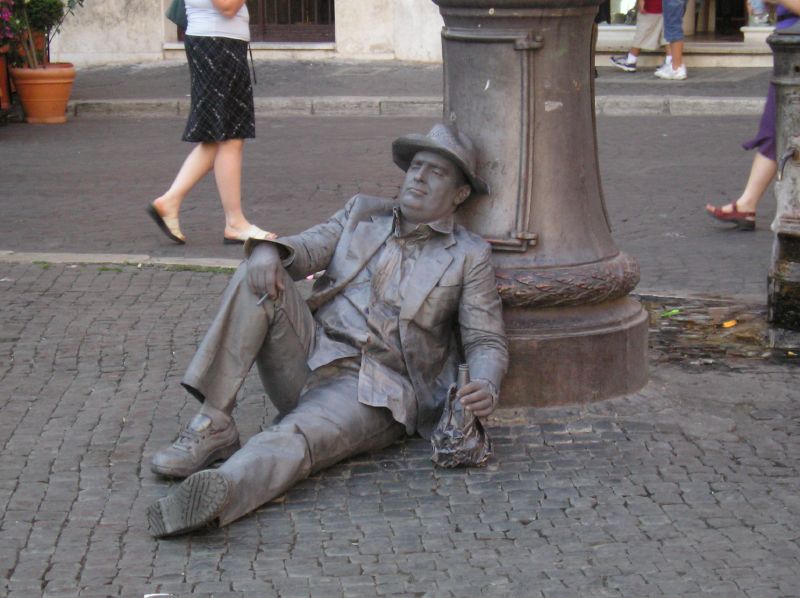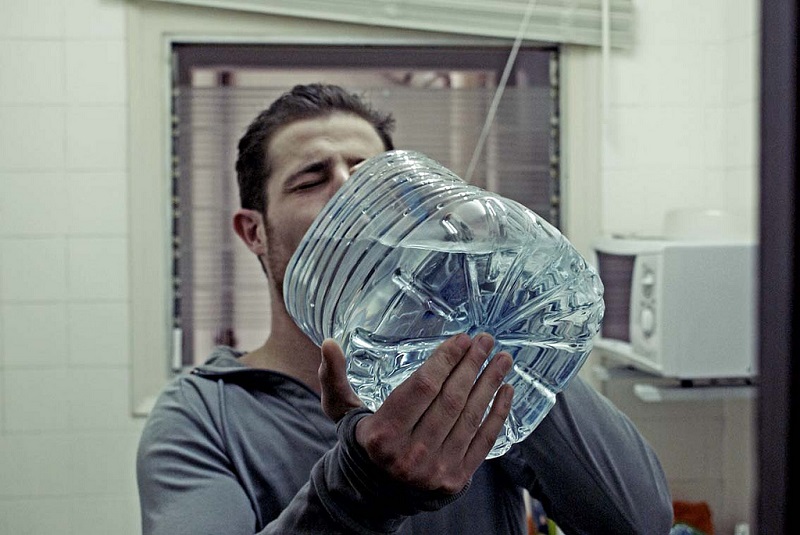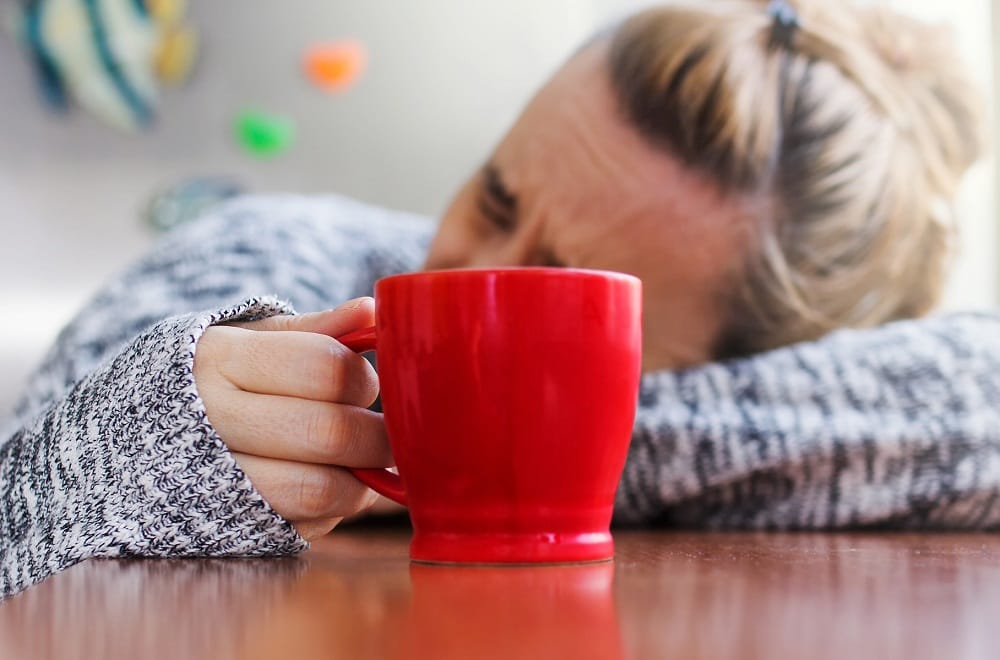How to cure a two-day hangover? That’s the first question that comes to mind the morning after drinking too many alcoholic beverages.
And the most common response should probably be: “I will never drink again!”
We all wish there was a magic cure for a hangover, but unfortunately it usually involves a certain amount of pain.
However, some things can be done to relieve headaches, nausea, fatigue and anxiety that assails you the morning after drinking too much.
This page contains everything you need to know about hangovers, from its description to the symptoms to how to cure them.
1. What is a Hangover
The hangover is the uncomfortable partner of many loyal or occasional drinkers.
It is caused by a mixture of the toxic results of alcohol metabolism (acetaldehyde), body dehydration, and loss of Vitamin A, B and C, several hours after a person has consumed more alcohol than his body can comfortably absorb.
Waking up with a hangover is miserable event, often described with rather colorful expressions: “I feel like I’ve been hit by a train” or “I have a hammer that keeps pounding in my head”, or else “I feel like I’ve been scraped off the bottom of a shoe”, or even “I’m on a search and destroy mission for the person whoever is using my brain as a basketball”
In slang, we also refer to hangovers in equally colorful terms:
- Irish flu
- An inexplicable headache (yes, irony)
- Divine punishment (when you experience a hangover on Sunday)
- Technicolour yawn
- Food poisoning (again, irony)
- Dawn damage
- Self-inflicted wounds
- Liquid flu
- Crudo (Mexican slang)
2. What Happens to Your Body When You Drink Too Much
A pounding headache, nausea, rapid heartbeat, dizziness, sensitivity to light, muscle aches and irritability are all symptoms that can be connected to a hangover. Sometimes it might be accompanied by ownership of a new tattoo (This page does not offer tattoo cures!)
Hangover symptoms also include thirst and fatigue. In some cases, depression, tension, pallor, tremors, vomiting, esophageal burning sensation, uncertain gait (body off-balance) and loss of appetite.

What happens inside your body after drinking an alcoholic beverage?
Excessive consumption of alcohol overloads your liver, thus, your body works overtime to eliminate all the harmful substances that have been ingested.
Too much alcohol also lowers your levels of the vitamin B1, essential for normal neurological function.
Blood sugar goes down, your body is dehydrated and a general fatigue takes over.
In a few words, your body has to run for cover, raised the drawbridge and is defending itself as best it can.
Remember: the lower the flavor of alcohol in your beverage, the less the amount of congeners contained and the better you will feel the day after (or, under another point of view, the less severe will be your hangover).
You can find lots of these toxins in red wine and dark liquors. Vodka and gin contain a few, while bourbon, rum and single malts are drinks that contain more.
The alcohol leaves your body fairly quickly, but the congeners remain in your body for the same number of hours is as the number of glasses drunk the previous night.
The severity of the hangover is directly proportional to the amount of alcohol ingested and will vary based on numerous factors, such as gender (ladies are affected worst), genetic predisposition, one’s drinking habits and the simultaneous intake of food, medicines or drugs.
With more than 2 drinks (let’s call this an average situation and use it as an example), your blood vessels constrict, blood pressure rises and your heart in the long run works worse.
After drinking, the alcohol slips into the stomach within seconds.
Within a few minutes, 20% of the alcohol filters into the capillaries of the stomach wall and enters the bloodstream (the fuller your stomach, the more gradual will be the absorption, therefore less damaging).
After 5 minutes, it floods the brain and interferes with the operation of the neurons, lowering the perception of danger.
After 10 minutes, the liver begins to eliminate the alcohol. The liver breaks down 90% of it.
After 11 minutes, some alcohol passes from the blood to the alveoli. These heat the alcohol up and turn it into steam, so breathing will knock it off (here’s the reason breathalyzer tests are useful).
The alcohol that has not been absorbed by the stomach within 20 minutes reaches the intestine, blocking the absorption of water (here’s why alcohol dehydrates, and why some people have to pee so much more when they’ve been drinking!) and passes back into the blood.
Only 5% of the alcohol around the body is eliminated by the kidneys through urine (the other reason some people have to pee so much more when they’ve been drinking!).
30 minutes after drinking, all the alcohol is circulating, numbing neurons and hindering many functions of the brain, with possible erectile dysfunction and reduced testosterone.
3. How to Cure a Hangover
The best way to cure a hangover is, of course, avoid drinking excessively. But that’s prevention, not a cure. We already mentioned before the damage that excessive consumption of alcohol can cause to your body.
But it can happen that you exceed your limit and you find yourself like a semi-conscious zombie, roaming the house in a desperate search for a solution to your hangover.
There is only one way to “cure” a hangover: time. But if you want to hasten your healing, instead of taking aspirin or other medicine, you can always choose more effective natural remedies.
Here are what you can do.
Water
The first and most obvious recommendation is to drink plenty of water, in order to rehydrate your body quickly and restore fluids lost due to alcohol.
At the same time, a good hydration favors the removal of a small portion of ethanol via urine and sweat (which along with the breath represent the auxiliary path to the hepatic detoxification).
So in order to help detoxify your body, it is always good to drink plenty of water before, during and after you are imbibing alcohol.
Before going to bed, drink two full glasses of water.
In the morning, be sure to hydrate yourself again.
As we mentioned earlier, your body is not only dehydrated, but has also lost a lot of nutrients. Adding a pinch of salt to the water will also help.
Remember, hydration is very important after a hangover.
It is the lack of fluids in your body that causes much of the inconvenience that you encounter the morning after drinking too much.
So make sure to drink 8 full glasses of water the day after you’ve drunk to excess.

Electrolyte Solutions
You can consume energy drinks (such as Gatorade, or similar ones) or even bouillon soup (if you can), because they help you recover minerals, such as sodium and potassium, you lost due to excessive drinking.
Sprite
Drinking soda (better if it’s caffeine-free), may help you ease a hangover.
Chinese researches in a study published in 2013, found that Sprite really supports your body during the alcohol metabolization by increasing your ability to process aldehyde dehydrogenase (ALDH), which is known as the first defense against hangover symptoms.
Bananas
If you drank too much, bananas are your best friend.
Dehydration, as we mentioned, comes with a lack of potassium. Eating a banana (as well as other foods that contain this element, such as potatoes) will help your body to stock up on potassium again, limiting the dizziness that is part of your suffering.
A study published in the “Quarterly Journal of Studies on Alcohol” shows that high doses of vitamin B6 reduce the symptoms of a hangover. A banana contains half the recommended daily amount, making bananas the ideal hangover helper (along with water, of course).
Bananas are also an excellent natural antacid, containing magnesium which helps to relax your blood vessels, which are dilated and pulsating abnormally during hangovers.
Ginger
Oh yes, ginger is an excellent remedy for a hangover.
We have already seen that it is a good ally to combat disorders related to sickness. In this case, it will help to limit nausea resulting from an excess of alcohol.
Hint: prepare a cup of tea with ginger. Cut 10 slices of the fresh root, and put them in a bit of water. Simmer for 10 minutes, strain and drink. You can add a bit of lemon and honey for taste.
Honey and lemon
Lemon and honey are not only good when added to a ginger tea, you can indeed create a drink made of lemon juice, hot water and honey.
Easy to take, this compound helps replenish fluids, sugars and nutrients lost by drinking too much alcohol.
The fructose present in the honey also helps the metabolism to balance sugar levels in the blood, reducing the headache and helping to dispose of the alcohol 25% faster.
Fruit Juice
A fruit juice, such as orange juice, will help to increase sugar levels in the blood quickly and, as we have explained before, to ease a hangover.
It basically helps the liver to break down alcohol and doubles the speed with which it is cleared from the blood.
However, if your stomach is upset, the orange juice could increase the acidic juices. In this case, you may prefer the apple juice.
Also, cranberry juice helps to start the recovery process in your body, facilitating the expulsion of toxins produced by alcohol consumption.
Tomato Juice
Besides the cranberry and apple, tomato juice is also a good ally to combat the symptoms of a hangover.
This is because of the lycopene (a good substance for fighting cancer) contained in these vegetables, which is a powerful antioxidant and reduces inflammation caused by alcohol abuse.
Also, it is very healthy for the liver that you’ve just abused.
Oatmeal
A bowl of hot oatmeal will provide the essential nutrients such as vitamin B, calcium and magnesium.
Oats are very important, because they help the body to excrete acids, providing a good dose of immediate energy.
Food
Although eating is probably the last thing you want during a hangover, munching on something helps you to feel better.
After waking up, it is recommended a simple breakfast, mainly based on fruit. The hangover, in fact, weakenes the whole body and especially the liver and stomach.
A metabolic problem has been created by the alcohol: your blood glucose levels are low, with many free radicals, your blood is more acid and some B vitamins have been spent in the detoxification of ethanol.
Start slowly with clear liquids until your stomach is ready to support something solid.
At that point, choose foods that are easy to digest, such a bit of rice, for example.
Even better, a breakfast of fruit, with a few slices of bread, jam and honey.

Ice
Even a pack of crushed ice in a bag and wrapped in a cloth can help soothe your headache and dizziness. This should be applied to your forehead, not consumed internally, of course.
You can also simply rinse a cloth in cold water and put it on your head while you’re lying at rest.
Physical Activity
If the hangover is not particularly serious, light physical activity can help you.
But pay attention, however, as your reflexes will be reduced, the risk of dehydration increased and your physical efficiency compromised.
Never do physical activity on an empty stomach, since alcohol causes hypoglycemia and inhibits gluconeogenesis.
Best not to ask your body too much, limiting yourself to a relaxing walk.
Artichoke and Milk Thistle Extracts
Last, but not least, precious help can be sought also in the extracts of artichoke and milk thistle, thanks to the silymarin they contain.
This substance, along with B vitamins and amino cysteine (precursor of glutathione), is a common ingredient of the so-called “sober up pills“, literally “pills to cures the hangover”, highly publicized on the internet.
Sleep
With time, sleeping is the best cure for a hangover (of course, if you don’t have to go to work, or school).
To Recap
The most important strategy is to control hydration. Drinking plenty of water before going to bed will cut off a part of the symptoms of hangover, allowing you to feel much better.
The natural remedies mentioned in this page should get you back on your feet after a night of excesses.
The important thing, however, is not to overdo it and always remember that consuming alcohol with food will dilute and delay the absorption of alcohol in your body.
Fully recovering from a hangover is normally only a matter of time. On average, you will feel better after 24 hours.

